Special Feature
The Most Influential People in Security 2017
Impacting enterprises, communities and nations, these 21 leaders are making a difference throughout the security industry.

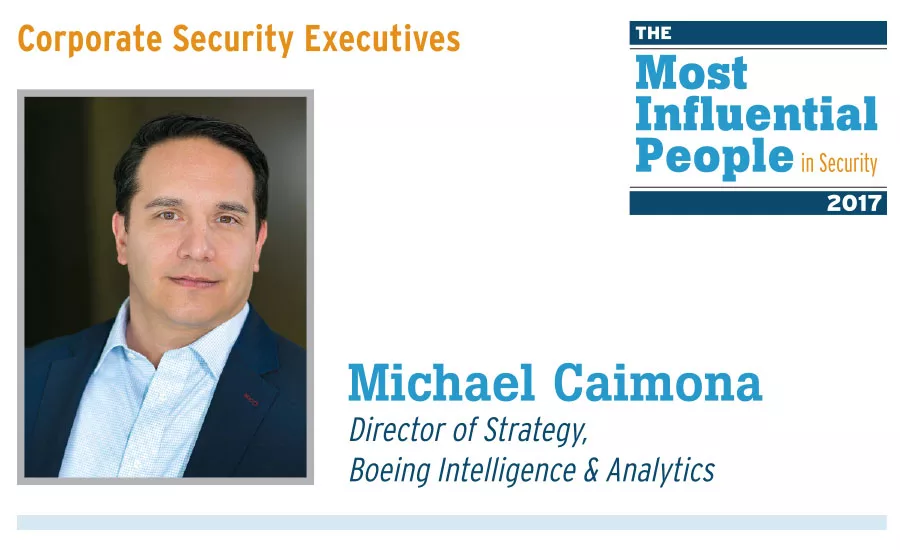
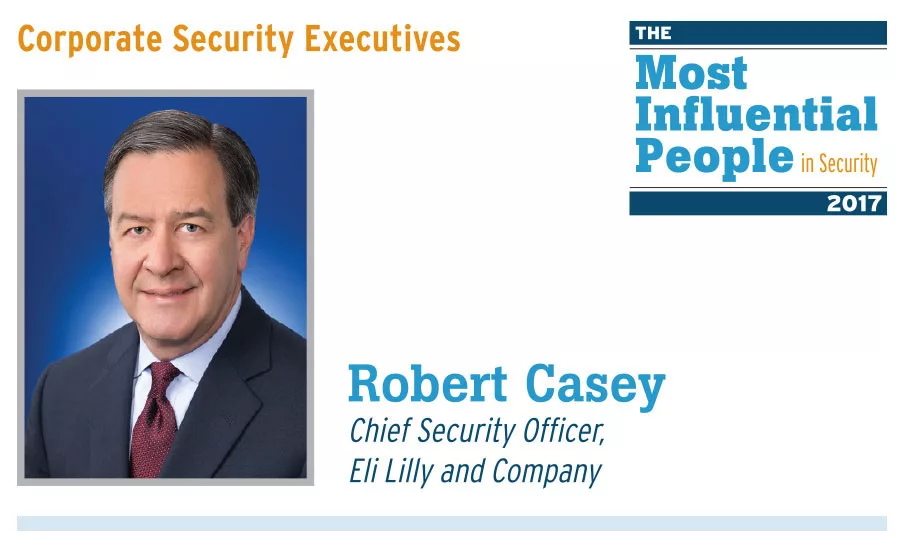
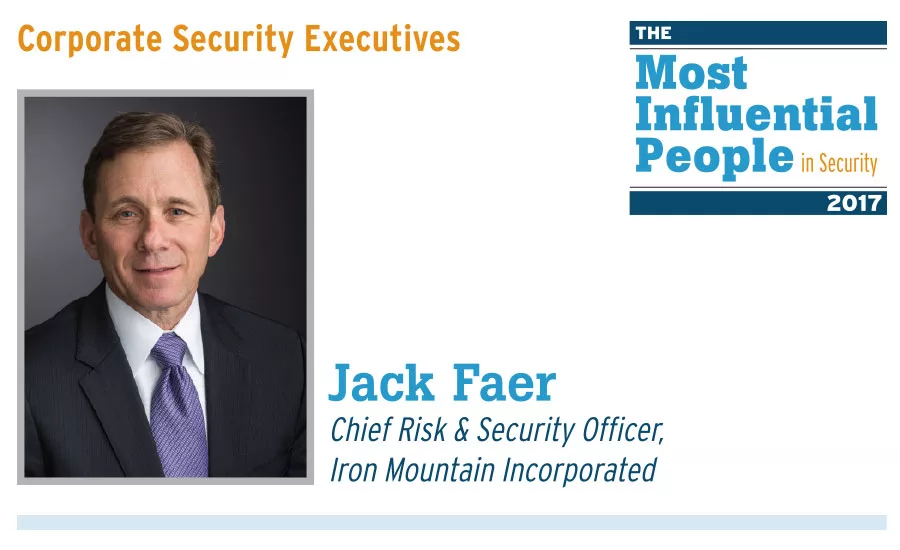
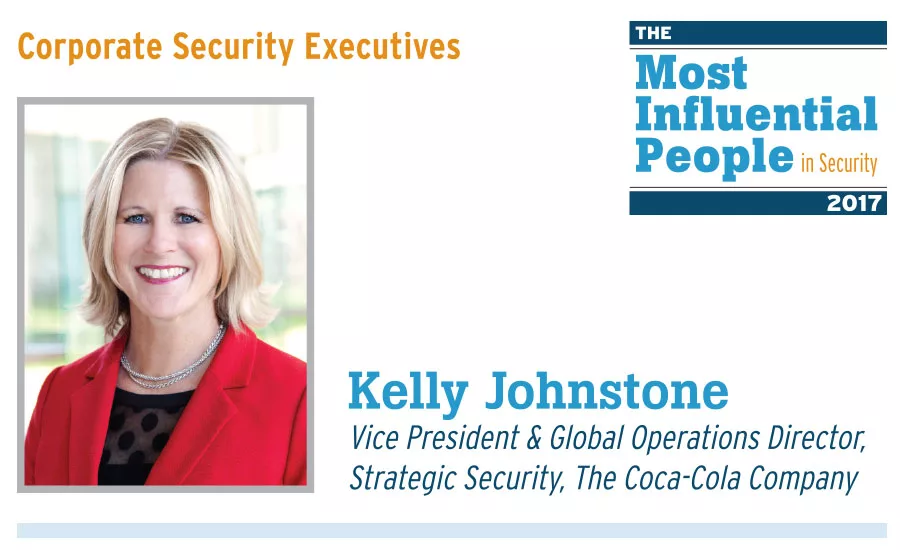
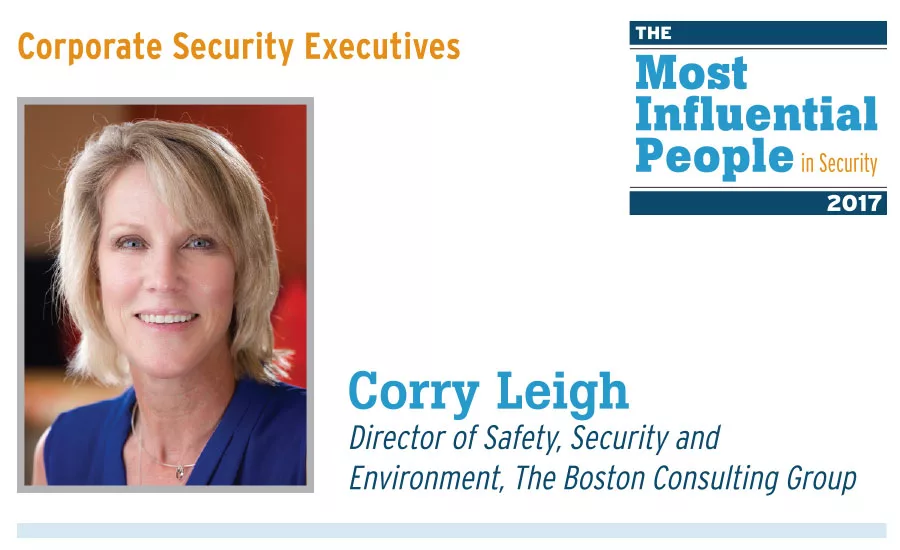

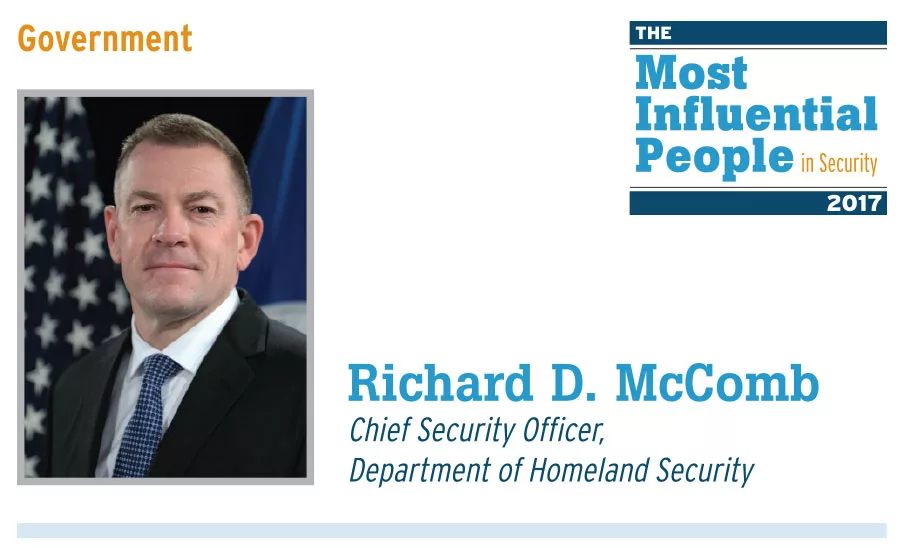
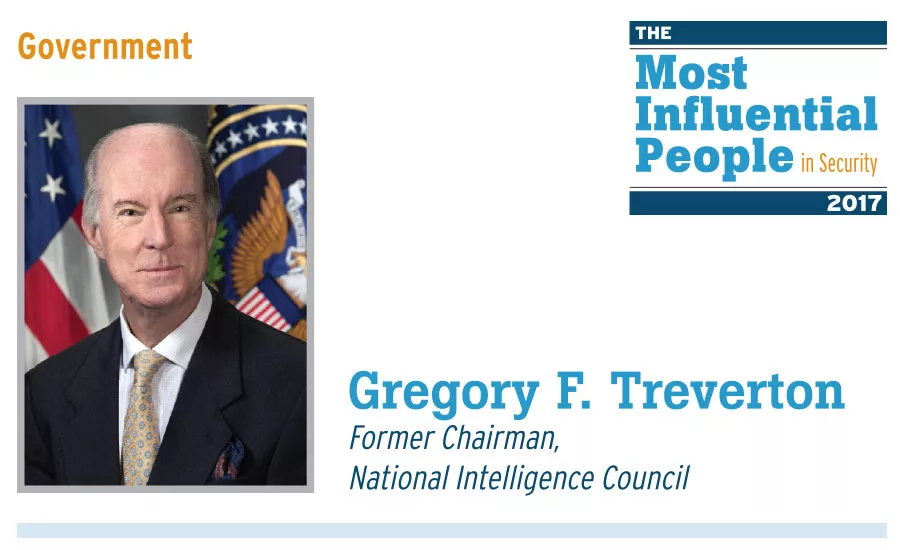
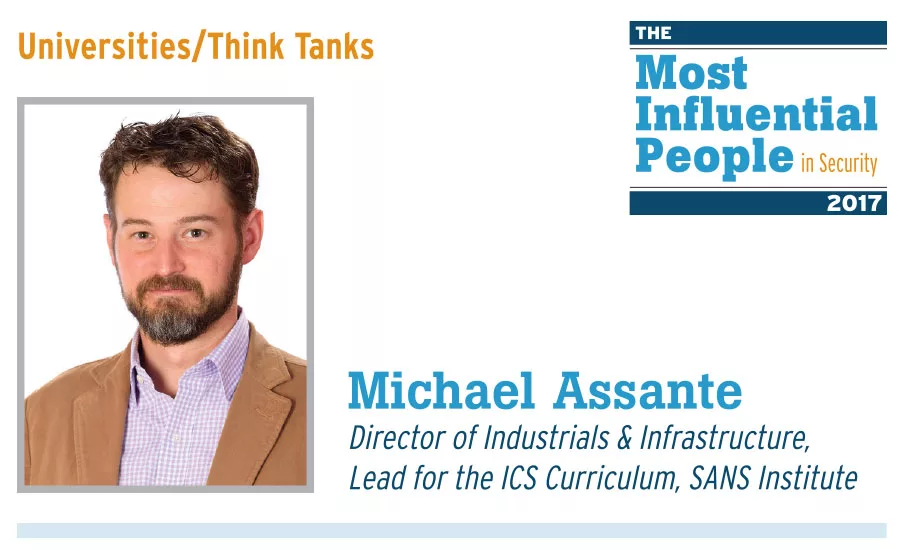
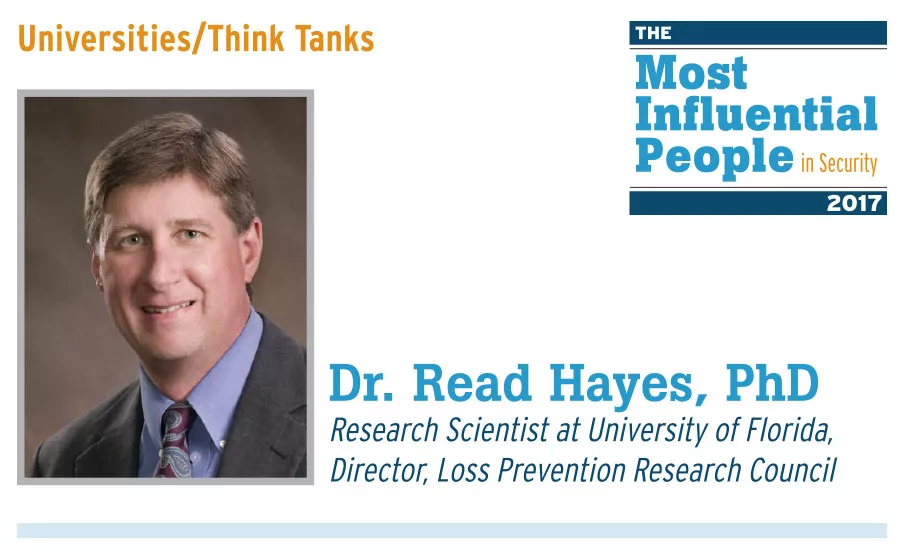

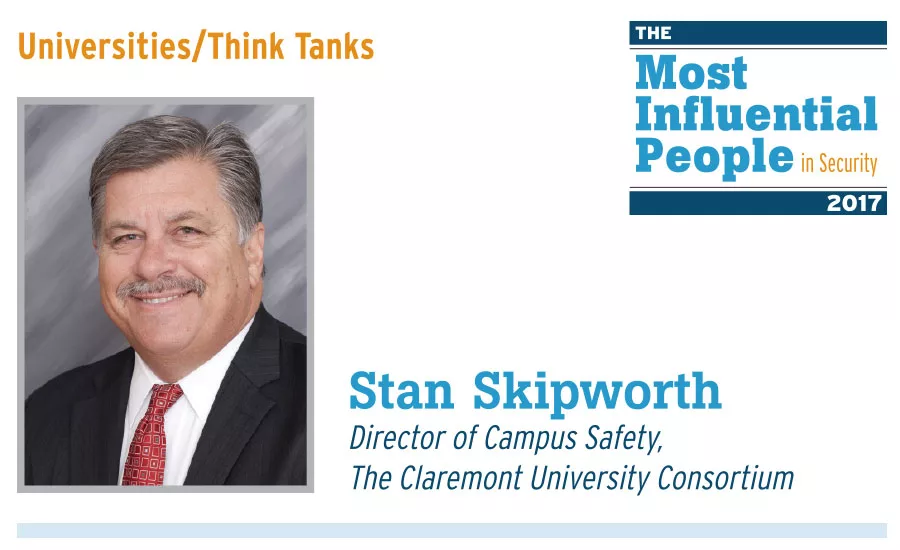
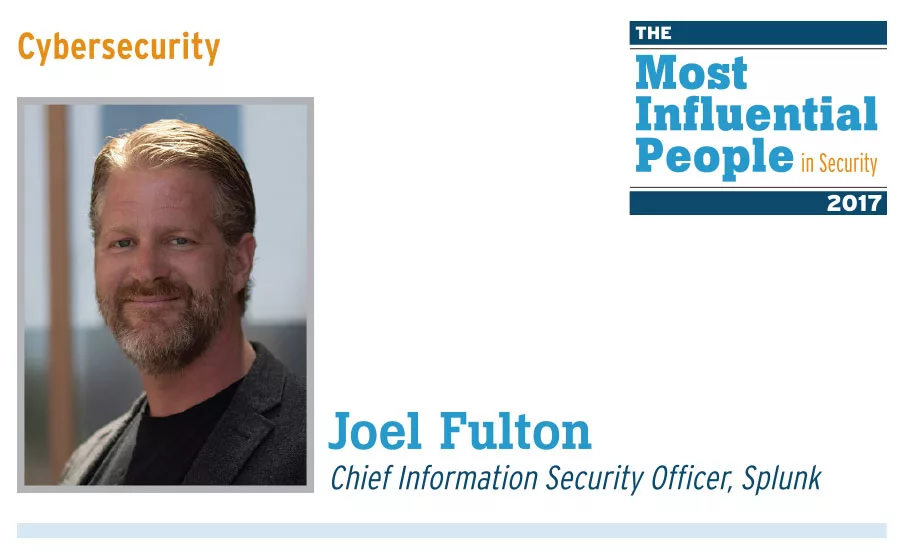

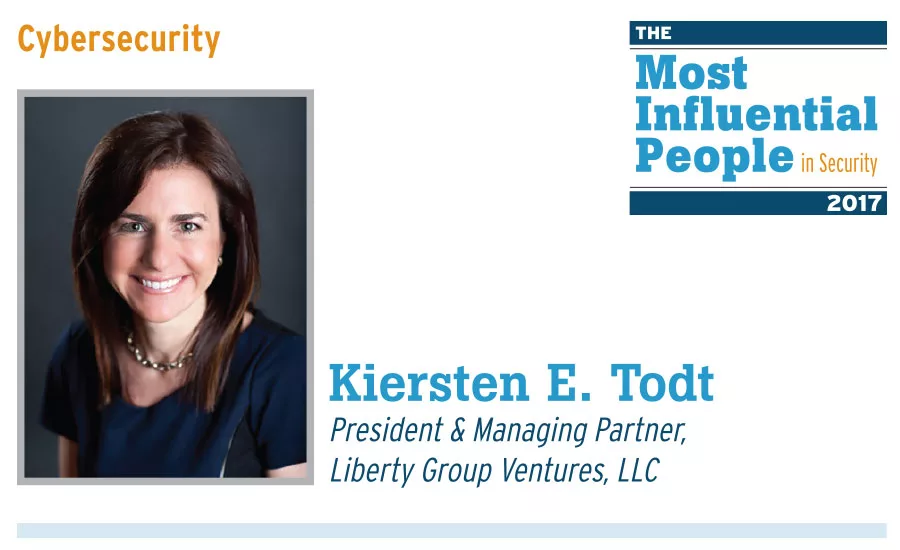
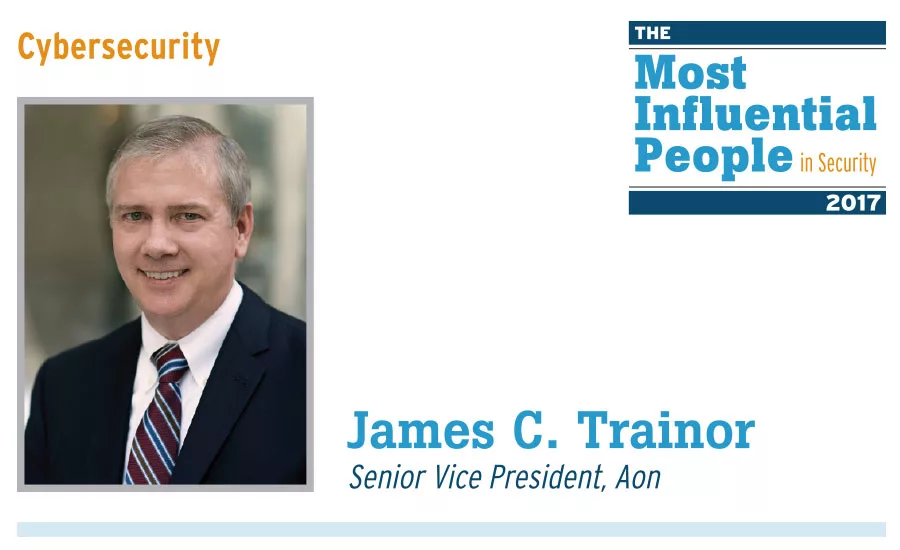
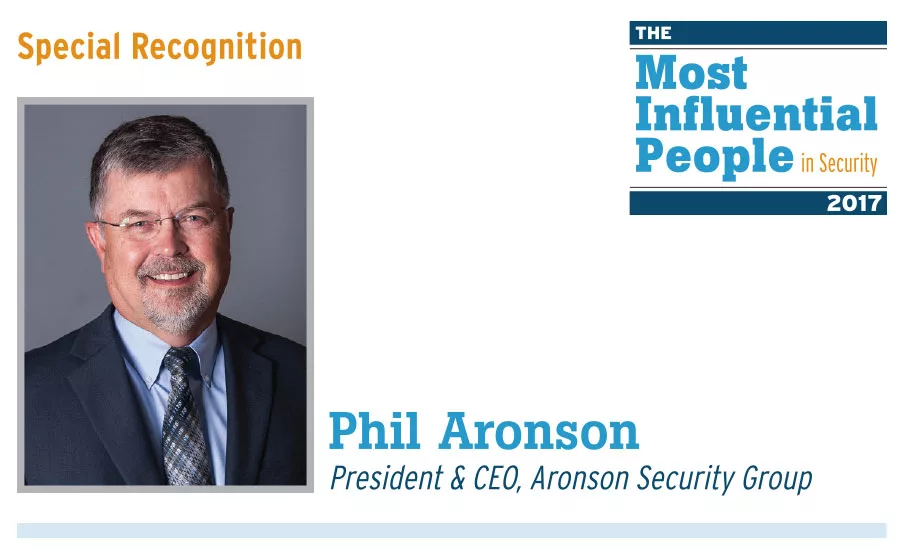
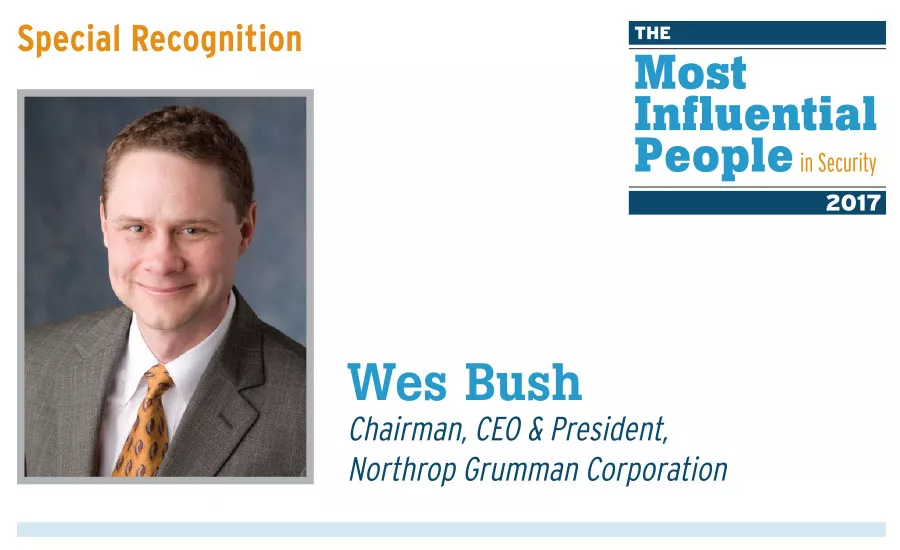
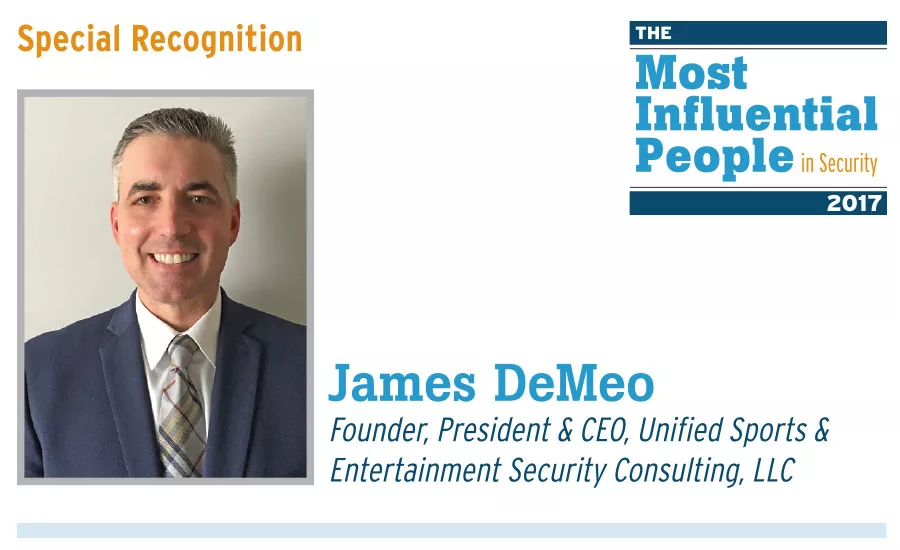

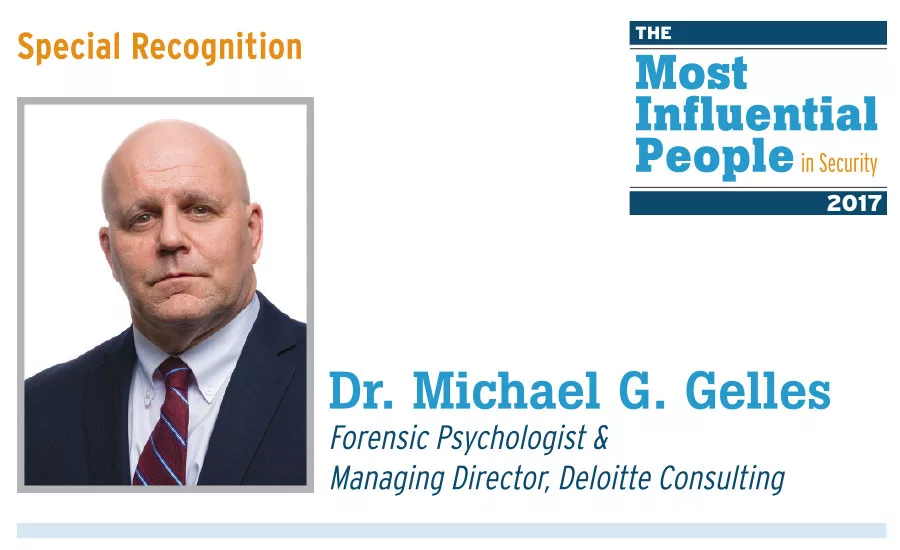
Every year, Security magazine is pleased to honor top security executives and leaders who are positively impacting the security industry, their organization, their colleagues and peers, and the national and global security landscape. They have been nominated by their colleagues and associates, and were chosen based upon their leadership qualities and the overall positive impact that their security initiatives, programs or departments have had upon their shareholders, enterprises, colleagues and the general public.
This year’s Most Influential is organized by five categories: Corporate Security Executives, Government, University/Think Tanks, Cybersecurity and Special Recognition.
Our special appreciation goes to Lynn Mattice and Jerry Brennan, who were our project partners and who provided subject matter expertise and research.
For a listing of past Most Influential People in Security honorees, please visit:
www.SecurityMagazine.com/MostInfluential
Congratulations to the Class of 2017 Most Influential People in Security!
List Overview (continued):
Caimona | Casey | Faer | Johnstone | Leigh | Tuskan | McComb | Treverton | Second page | Third page
Corporate Security Executives

Michael Caimona
Director of Strategy,
Boeing Intelligence & Analytics
Michael Caimona is the Director of Strategy for Boeing Intelligence & Analytics (BI&A), where he is responsible for developing, communicating and executing a complex business strategy for Boeing’s line of business supporting the U.S. National Security Community. Caimona recently established BI&A’s Advanced Analytics team, which is responsible for the insider threat problem domain. He serves as Boeing’s public-private partnership liaison regarding security and insider threat to ensure the company is leveraging best practices across the government and private sector.
He also developed and manages an immersive insider threat Analyst Tradecraft course that is used internally and by U.S. government and commercial partners. The unique course, endorsed by Carnegie Mellon University’s CERT, teaches analysts how to recognize key indicators of insider threats and familiarizes them with data sources commonly used in the security community.
Caimona joined Boeing in 2012 following the company’s acquisition of Kestrel Enterprises, Inc., where he served in several leadership and management positions, including Executive Vice President. He has led numerous high-performing teams focused on providing analytic, technical and management support to the U.S. Intelligence, Department of Defense and Law Enforcement communities. He has deployed to the Middle East and Asia in support of his customers’ missions and regularly provides conference presentations on topics including Human Tracking, Fundamentals of Analytics, Insider Threat and Data Management for Counter Terrorism Targeting.
Prior to joining Kestrel, Caimona served in the United States Navy, climbing the ranks from enlisted Intelligence Specialist to Senior Intelligence Officer. While on active duty, he served in key operational and staff assignments afloat and ashore, and his operational duties included deployments to the Middle East, the Mediterranean and North Atlantic. He provided direct action support during Operations Noble Anvil, Enduring Freedom and Iraqi Freedom, and he participated in several sensitive missions vital to national security and the Global War on Terrorism. During staff assignments, he was charged with evaluating technology to enhance the Navy’s technical and analytic efficiency and effectiveness. Caimona was awarded several personal, unit and campaign awards, including a lifesaving medal.
He holds a Master of Science degree in Management, a Master of Strategic Intelligence with a Competitive Intelligence concentration and a Bachelor of Science degree in Mathematics.

Robert Casey
Chief Security Officer,
Eli Lilly and Company
Robert Casey heads the Global Security department at Eli Lilly and Company, one of the world’s leading pharmaceutical manufacturers. His global responsibilities focus on personnel, facility and asset protection, using a functional center of excellence model.
Casey leads a team of professionals who develop and manage security policy, standards, best practices and specialized security consultation and services. To better market the security function within the company, he led the creation of a campaign that included global intranet employee communications and an internal “elevator speech” brochure using the theme: "Enabling our business… Securing our future."
Casey and his team recently developed a substantially improved approach to the composition and governance of Lilly’s physical security design and performance standards.
Prior to joining Lilly in 2012, Casey served as an FBI Special Agent for 25 years. He held every rank in field office assignments in Phoenix, Chicago and Miami, ending his career as the Special Agent in Charge in Dallas. He also served two tours at FBI Headquarters in Washington, D.C., where he last held the rank of Deputy Assistant Director in the Directorate of Intelligence. He was heavily involved in the post-9/11 transformation of the Bureau’s intelligence capabilities. Casey is a recipient of the Presidential Rank Award of Meritorious Executive. Prior to joining the FBI, Casey was a five-year veteran of the Houston, Texas Police Department, where he was assigned to patrol and intelligence operations. He was named the Police Officer of the Year in 1983.
A native of Indianapolis, Indiana, Casey holds a bachelor’s degree in Criminology from Indiana State University, where he serves on the President’s Advisory Board, and which named him a distinguished alumnus in 2004.

Jack Faer
Chief Risk & Security Officer,
Iron Mountain Incorporated
Jack Faer leads information management company Iron Mountain’s Global Safety, Risk & Security team. In this role he is responsible for all aspects of corporate security and safety; including risk management, fraud prevention, information security, and crisis management programs – as well as the vital security interests of the company’s customers. His role is critical in upholding the company’s brand promise, especially among their client base of Fortune 1000 companies. Iron Mountain offers products and services that help their clients manage the risks and security associated with managing their records, information and data.
Faer joined Iron Mountain in 2012, and he has more than 30 years’ experience in risk management, auditing and investigation. Prior to his time at Iron Mountain, he served as senior vice president of operational risk management at State Street Global Advisors (SSgA).
He spent more than 17 years at Fidelity Investments, where he held a variety of leadership roles including Senior Vice President, Chief Security Officer and Senior Vice President of Risk & Compliance for the retirement and outsourcing business. He has also held audit and consulting roles with PricewaterhouseCoopers and Deloitte.
Faer is a former Special Agent with the FBI, and is a certified public accountant. He holds an MBA from Pace University and a Bachelor of Science from the Smith School of Business at the University of Maryland. He sits on the Executive, Audit (chair) and Nominating & Governance Committees of the Board of Directors for the Alzheimer’s Association.
Faer was recognized in by Insurance Business Magazine in 2017 as a Leading Risk Manager.

Kelly Johnstone
Vice President & Global Operations Director,
Strategic Security,
The Coca-Cola Company
Kelly Johnstone joined The Coca-Cola Company in 2000 following 17 years of law enforcement and security experience in the government sector. She was elected as a company vice president in May 2015 and has leadership responsibility for the strategic security, information assurance and global asset protection operations.
Johnstone has global responsibility for ensuring safe and secure operations for the Coca-Cola Company’s 100,000+ employees operating in more than 200 countries across the company’s operating segments: Europe; Middle East and Africa; Latin America; North America; Asia Pacific; Bottling Investments Group; and Corporate. She also oversees information assurance, including cyber threat intelligence, computer forensics, eDiscovery and cyber investigations. She has served in numerous roles within Strategic Security during her 17 years with The Coca-Cola Company, and she also served as Executive Assistant and Chief of Staff to the Executive Vice President and Chief Administrative Officer, Alex Cummings, from 2010 to 2012.
Prior to joining Coca-Cola, Johnstone was one of the first 20 agents hired into the newly established Office of Criminal Investigations within the U.S. Food and Drug Administration. She was also a special agent for the former U.S. Customs Service, Office of Enforcement (now known as Immigration and Customs Enforcement) and the Naval Criminal Investigative Service. Her responsibilities included managing and conducting criminal investigations, dignitary protection, anti-terrorism and foreign counterintelligence initiatives and operations.
Johnstone is a graduate of the University of Florida and the Harvard Business School, General Management Program. She currently serves on the boards of the International Security Foundation and Domestic Security Partnership, and she is an active member of the International Security Management Alliance (ISMA).

Corry Leigh
Director of Safety, Security and
Environment, The Boston Consulting Group
Corry Leigh, Director of Global Safety, Security and Environment for the Boston Consulting Group, Inc., has more than 20 years of global experience with the private sector in the field of crisis communications and crisis management. In her role, she is responsible for the overall direction, development and execution of BCG’s global security, threat response and environmental programs, including the crisis management, global travel security, physical security and environmental programs.
Leigh’s experience in crisis management and communications has extended throughout her current role, includes building a robust travel security program for BCG’s 14,000 employees, who operate in 85 offices in 48 countries, including some high-risk locations. In addition, Leigh and her team have worked to develop a physical security program that aligns security practices throughout all offices with a common footprint to enable easier transitions and operation. She also provides input to and interprets BCG’s environmental strategy.
Prior to joining BCG in 2006, Leigh worked for Western Systems Coordinating Council, a consortium of 100 large utilities on the West Coast, working to manage crisis response and media in the utilities segment, as well as handling partnerships and contracts with local utilities during crises, including the Western North America blackouts in the summer of 1996. Following her work with WSCC, Leigh joined Service Resources, an Atlanta-based energy producer, and then Mirant Corporation, where she managed corporate communications.
Leigh is active with the international security community, and she is a member of the International Security Management Association (ISMA), where she serves on the Education Committee and develops strategic planning for the Leadership Program at Georgetown University. She is also a member of the U.S. State Department’s Overseas Security Advisory Council (OSAC) and ASIS International.
Leigh graduated from Montana Tech of the University of Montana with a Bachelor of Science in Engineering and a Bachelor of Science in Communications.

Brian Tuskan
Senior Director of Security,
Microsoft
Brian Tuskan has more than 16 years of corporate security experience as the Senior Director of Security at the Microsoft Corporation. He has led Microsoft Global Security teams in physical security operations, investigations, background screening, security communications, retail security, event security, intelligence and business development.
Tuskan is currently spearheading the technology development of Microsoft’s Global Security’s Virtual Security Operations Center (VSOC), which will be the security operations center of the future, leveraging intelligent cloud, intelligent edge, AI, robotics and 3D mixed-reality to manage global life-safety security operations for the business. Through the combination of advanced technology, security response will become smarter, more coordinated and proactive, Tuskan says.
Prior to joining Microsoft, Tuskan spent more than 12 years in law enforcement with the City of Redmond Police in Washington and the Honolulu Police Department. During his distinguished law enforcement career, he worked as a patrol officer, ATV specialized unit, SWAT tactical team member, criminal intelligence and analysis, undercover narcotics detective, major crimes detective and officer-in-charge.
Outside of Microsoft, Tuskan founded Cop to Corporate, a blog that helps law enforcement professionals plan their transition to the private sector. He has also provided mentorship and coaching for military veterans looking to transition to the private sector, and he has presented on this topic at the FBI National Academy Associates and Homeland Security Investigations.
Additionally, Tuskan sits on the Microsoft Worldwide Public Safety and Justice Advisory Council, is an Advisory Board Member of Secure Strategy Group, and served on the ASIS Leadership & Management Practices Council.
He has a Criminal Justice degree from Wayland Baptist University, is a graduate of the University of Washington Foster School of Business Executive Development Program, and received an Executive Leadership Certificate from Georgetown University.
Government

Richard D. McComb
Chief Security Officer,
Department of Homeland Security
Richard McComb was appointed to the position of Chief Security Officer for the U.S. Department of Homeland Security in April 2016. In his role, he is responsible for security-related programs affecting more than 235,000 DHS employees, and he exercises department-wide security program authorities in the areas of personnel security, physical security and investigations, administrative security, insider threats, identity management, special access programs, and security training and awareness.
As Chair of the CSO Council, McComb partners with all his counterparts in the DHS Components to lead a highly collaborative and uniquely decentralized security program designed to safeguard the Department’s people, property, information and systems.
Since his arrival within the Department, McComb has led the Office of the Chief Security Officer (OCSO) to develop its first personnel security analytics report, which provides department-wide statistics for both contractors and federal employees, providing visibility to customers and insight into areas for process improvement. In addition to standardized metrics, he led the implementation of a number of policy changes that balanced risk with the achievement of several efficiencies, not only supporting DHS’s hiring goals for mission-critical occupations but also ensuring that suitability and security clearance reciprocity averages for the Headquarters and Department’s Components achieved the U.S. government mandates.
McComb has mandated a number of risk reduction strategies, including physical countermeasures and employee education at the DHS Headquarters that not only provides for a higher degree of physical security for the campus, but also a more rapid and comprehensive response in case of emergency.
Prior to joining DHS, McComb served as the Director, Leased Facilities Protection Directorate, Pentagon Force Protection Agency. He served for more than 27 years in the United States Air Force as a Security Forces Officer, retiring in 2015 as a Colonel. He served as a Chief of Security Forces four times at the installation level and once at the Major Command level.
He holds a Bachelor of Science degree from Columbus State University, a Master of Arts in Administrative Management with a public sector concentration from the University of Maryland University College, as well as a master's degree in Military Operational Art and Sciences from Air University and a master's degree in National Security Strategy from the National War College, National Defense University.
McComb is a member of ASIS International and the American Society for Public Administration.

Gregory F. Treverton
Former Chairman,
National Intelligence Council
Gregory F. Treverton served as the Chair of the U.S. National Intelligence Council (NIC) from 2014 to January 2017. The NIC is the interagency arm for current intelligence support to senior policymakers. Within the NIC, Treverton led a 150-person analytic staff, focusing on driving opportunities for more strategic analyses – those that seek to put issues in a broader context or longer time horizon – amidst the press of consuming crises ranging from Ukraine to Syria, Iraq and Afghanistan, to Africa. During his tenure at the NIC, Treverton pressed innovation in analytic methods, creating a methodology cell and incorporating both an unclassified and classified "prediction market" as kind of a "red team" check on assessments.
He served earlier in government on the staff of the first Senate Select Committee on Intelligence, on the National Security Council staff and as Vice Chair of the NIC.
For many years, he worked at the RAND Corporation, where he directed several centers, most recently the RAND Center for Global Risk and Security, which he established by recruiting Advisory Board members, developing project ideas and raising funding. Within this role, his executive projects ranged widely across security issues – from Track II diplomacy in Sudan, to assessing the financial crises after 2009, to exploring the implications on interconnected threats to the global "commons" (disease, drought and climate change), to the future of policing.
Treverton was president of the Pacific Council on International Policy, a senior fellow at the Council on Foreign Relations, and assistant director of the International Institute for Strategic Studies in London.
He has been on the faculty of Harvard’s Kennedy School of Government and Columbia’s School of International and Public Affairs. He serves as a senior fellow for the National Defence University in Stockholm, building a research and training project on homeland security intelligence and managing an annual global conference.
He has written widely on intelligence, strategy and national security. Treverton’s latest books are National Intelligence and Science: Beyond the Great Divide in Analysis and Policy (with Wilhelm Agrell), Oxford University Press, 2015; and Dividing Divided States, University of Pennsylvania Press, 2014.
Looking for a reprint of this article?
From high-res PDFs to custom plaques, order your copy today!




